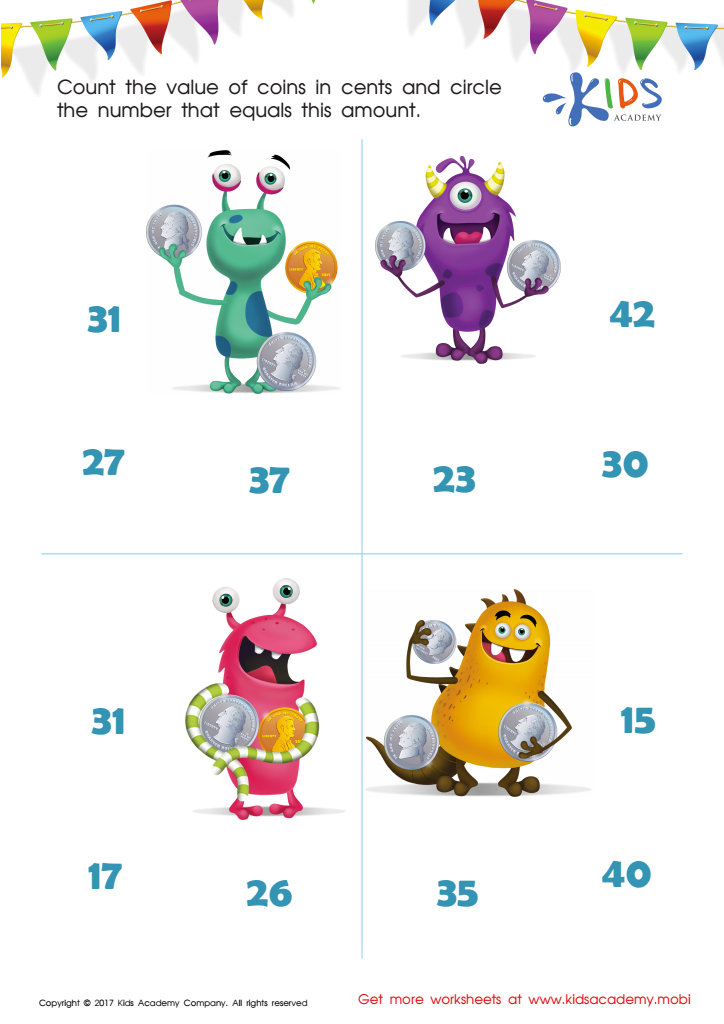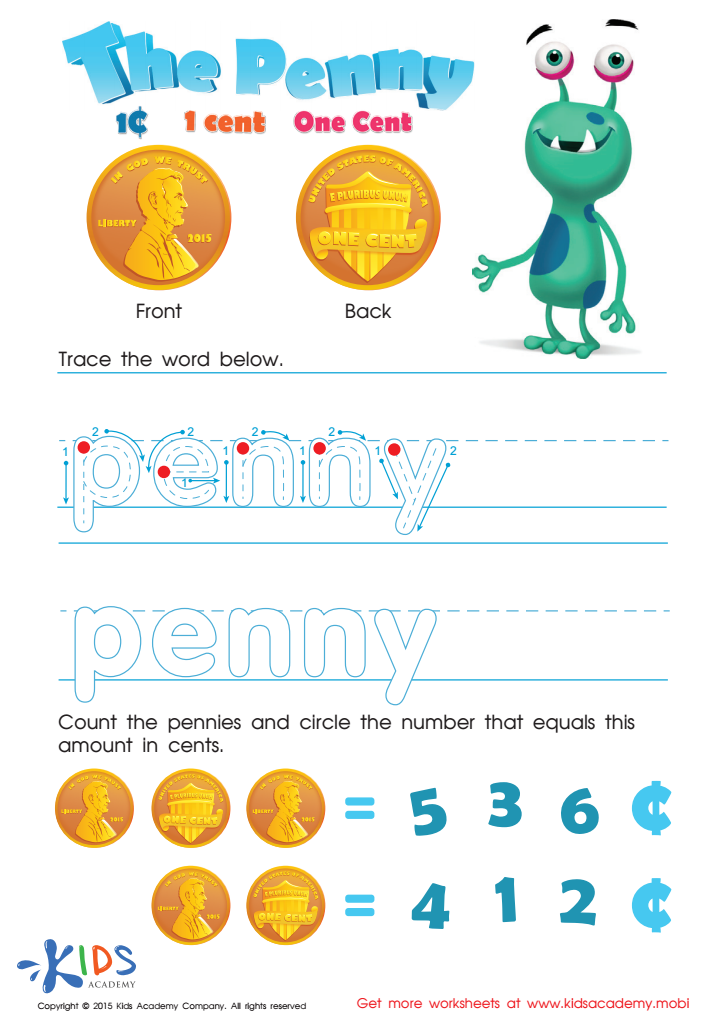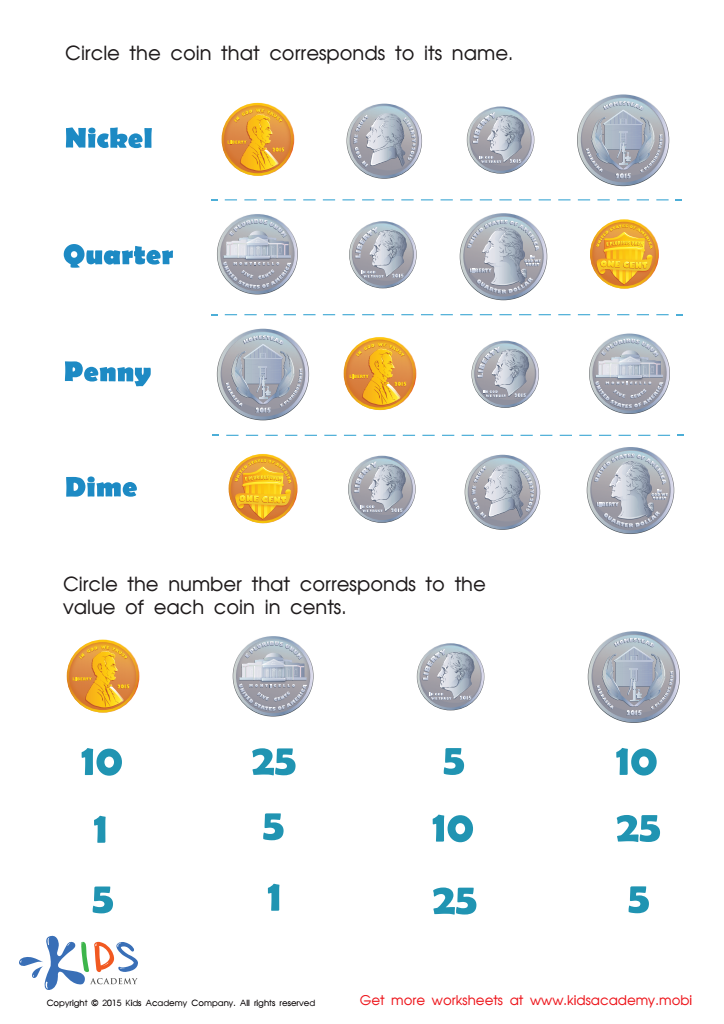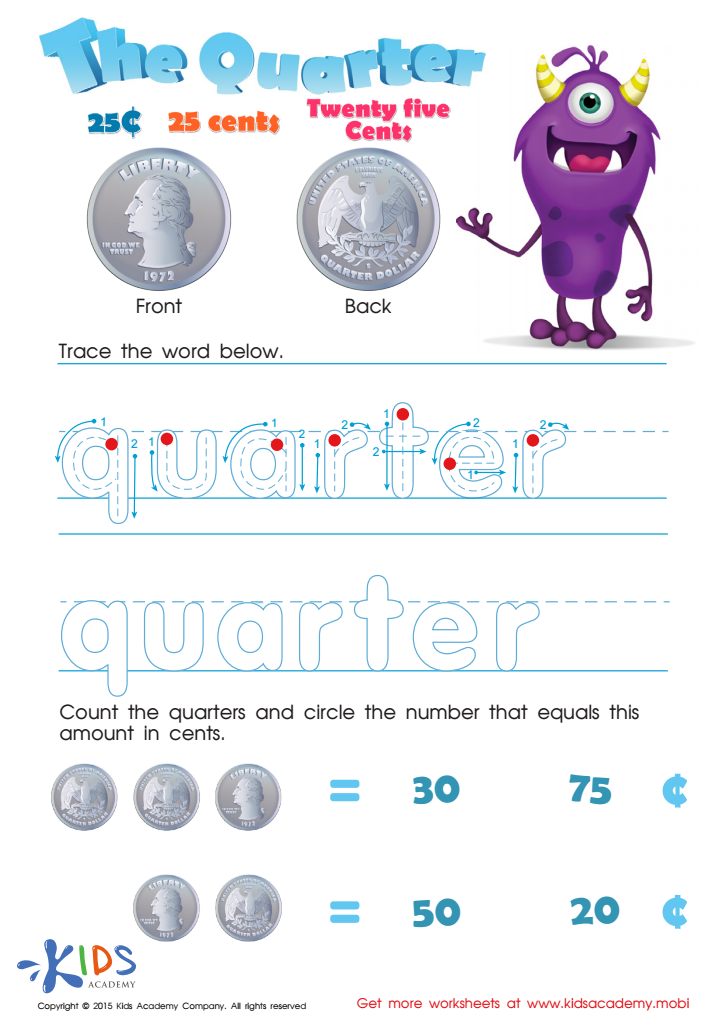Money recognition Extra Challenge Math Worksheets for Ages 5-6
4 filtered results
-
From - To
Enhance your child's math skills with our "Money Recognition Extra Challenge Math Worksheets" designed for ages 5-6! Our fun, engaging activities help young learners identify and count coins, fostering essential financial literacy from an early age. Perfect for kindergartners and first graders, these worksheets provide a challenging twist to boost confidence in handling money through activities that go beyond basic recognition. Ideal for at-home learning or supplemental classroom practice, our printable worksheets ensure children enjoy every learning moment while mastering these vital skills. Unlock their potential today and make math fun with Kids Academy!


How Many Coins Money Worksheet


One Cent or the Penny Money Worksheet


Coin Names and Values Money Worksheet


Twenty Five Cents or the Quarter Money Worksheet
Parents and teachers should care about extra challenge math activities, such as Money Recognition, for children aged 5-6 because these skills lay the essential groundwork for financial literacy and cognitive development. At this formative age, children are highly receptive and innovative, making it an ideal period to introduce complex, real-world concepts in a playful and engaging manner. Recognizing coins and understanding their values help kids develop numerical fluency, enhance their counting abilities, and introduce them to basic addition and subtraction. Moreover, these activities foster a sense of responsibility and an understanding of the monetary system, essential life skills that they'll carry into adulthood.
Coupled with their natural curiosity, facing extra challenges encourages children to think critically and solve problems, thereby strengthening their cognitive capabilities. Money recognition exercises also improve fine motor skills through hands-on activities and boost memory through repeated practice. Importantly, this subject matter can excite and motivate young learners, as they often encounter money in everyday situations, such as purchasing items in a store or receiving allowances. Integrating these practical exercises as part of their early education ensures that children gain confidence in their numerical abilities and builds a strong foundation for more sophisticated math concepts in the future.
 Assign to My Students
Assign to My Students






.jpg)














